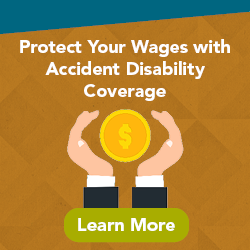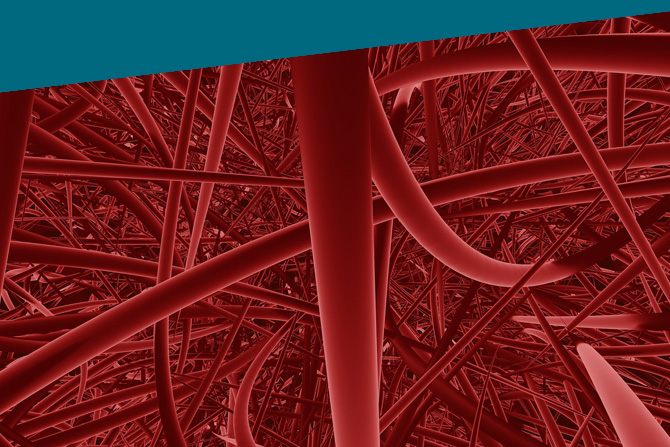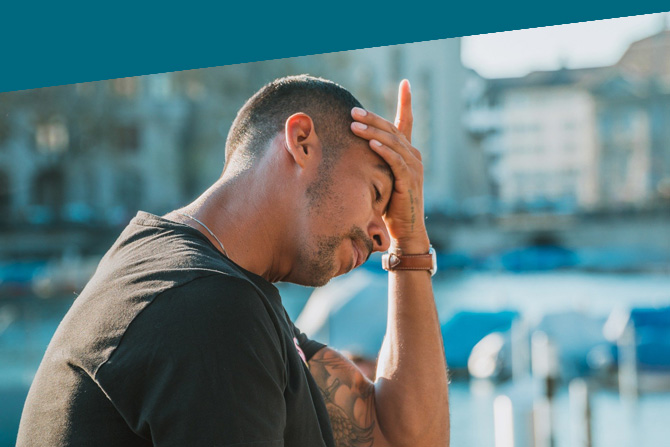Strategies to Cope with a Physical Disability
June 04, 2021
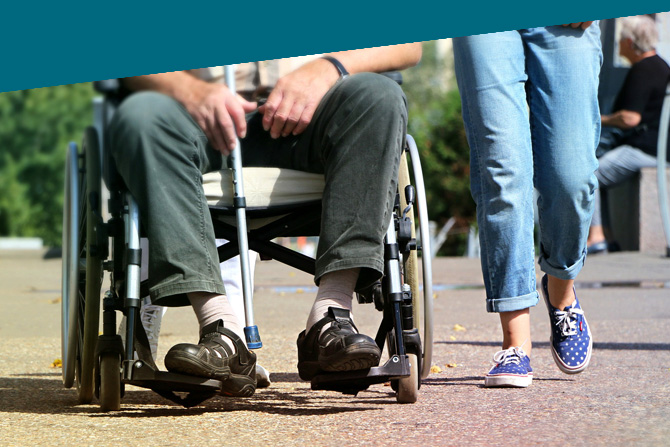
If you have suffered an injury or illness and now have a physical disability, coming to terms with this and living with a positive outlook can feel almost impossible at times. But be assured there is a much happier life waiting for you, despite the limitations. Here are 10 coping strategies that will help you find hope and manage your disability, whether it’s short- or long-term. KeenanDirect is on your side, and we are excited to help you discover how far life can take you!
#1. Be nice to yourself
Sometimes when we are “down and out” we learn who our real friends are, and, sometimes, they disappear entirely. This is when you learn that the one person you can consistently rely upon in this world is yourself. It’s so important to be your own best friend. Having friends, even one, is a bonus, so be your own champion first, and learn to speak to yourself kindly. As Matt Kahn says, if you wouldn’t say it to a child in pain, do not say it to yourself.
#2. Take your time to find acceptance
Often, a disability brings doomsday thoughts or feelings of “why me?” and the unfairness of life. Eventually, however, you might notice that the fight against reality makes the situation worse. Hating the disability makes it more painful. Judging yourself for having sadness and negativity also makes things more difficult. Instead, acknowledge that your feelings are normal and expected. Allow yourself to be angry at first, knowing anyone in your situation would feel the same. But soothe yourself in your pain, and know it will lessen in time. Know you are a good person and you did nothing wrong. Life is not easy nor logical sometimes, and your condition is not a punishment. The randomness of disability can and does catch many people off guard in this world, and you are not alone in that regard. Know there is nothing you could have done differently, and you are currently doing your best.
#3. Trust in the guidance of a counselor
A good licensed therapist can be a godsend. When ill, injured, or disabled, we can often feel like others don’t understand us. Or perhaps people in our life feel that conversations about our condition are a burden to them. When life feels too difficult to handle on your own, a counselor can offer a logical and compassionate approach to seeing things in a way that leads to better days, a functional life, and a renewed sense of purpose. Don’t give up if you don’t “jive” with the first counselor you meet. Give yourself the opportunity to try until you find one you really like and who helps your progress.
#4. Find your power in the present moment
A great mantra shared by Disability World is: “What happened in the past, I let it go, I let it go, I let it go. I shall now put it behind me and concentrate on the present. There are good things for me to build on so I can achieve my dreams one day. “
Eckhart Tolle wrote a beautiful and powerful book called “The Power of Now.” In it, he describes that the present moment is all that truly exists. Anything we resent or regret is based in the past and anything we feel anxious about is based in a future that hasn’t yet happened. If we can learn to live in “the now” these emotions cease to exist. Part of learning to live in the present moment is learning to meditate. Do you think you can sit still for five minutes without a thought? Play with this idea and, if you don’t know where to begin, Google “guided five-minute meditation” online. Almost all meditations focus on the breath, and breath is life, no matter what condition your body might be. Practice sitting or lying still, focusing only on the inhale and exhale of your breath, without thought.
#5. Recognize the power of positive language
At the beginning of a disability, life may not feel worth living and you may feel as if your plans have been thwarted. As you give yourself time to grieve, accept any new limitations, and find courage to continue, realize that you can open a new door with the power of language.
Have you seen the water experiments conducted by Dr. Masaru Emoto in the 1990s? He tested the effect of words, prayers, music, and environment on water. In one experiment, he took jars of water and wrote negative words on some and positive words on others. Then, he froze the water. The ice crystals that were formed by water surrounded by negative words were jagged and misshapen. The ice crystals formed by water surrounded by positive words were beautiful and perfect. The experiment showed the influence of words. If you can learn to celebrate yourself and speak positively to yourself, the words you speak will truly change your life and the realm of possibilities for you. Since it may be unlikely that someone will congratulate you for coping with your illness, make it a habit to say to yourself “Good job coping so well today!” Taping encouraging quotes and poems to your mirror or wall is also a great practice. The power of words is truly incredible!
#6. Make time for the things you enjoy
Nurturing yourself is key when reinventing your life with a disability. There are still so many good things to experience, so make room for joy! Pick an activity, hobby, or interest that you’re still able to do, see, or hear, even if on a limited basis. Or pick a new one. Make a point of turning it into a fun daily or weekly ritual, even if you have to alter the way in which you do it. Try finding online social groups that have your same interests or join a “Meetup” through meetup.com. Doing so will give you something fun and meaningful to look forward to. Fun is still a part of who you are and perhaps can even play a bigger role than before.
#7. Envision the possibilities
It’s so easy to fall into a victim mindset, so it will take extra concentration to focus on what you can do in the future. You still have a life you can enjoy. There are millions of possibilities and your presence on earth is purposeful. Take an inventory of your strengths by writing them down. If you used to have a job that you can no longer perform, find a career counselor who can help you find a suitable job, work with your limitations, and see the possibilities. In addition, to remind yourself of your power and purpose, help others by offering your knowledge or small services when you feel healthy enough to do so.
#8. Gently exercise and eat right
Your body is capable in many ways, so exercise it to the best of your ability. To prevent it from feeling like a chore, find the right type, and be gentle about it with the help of a physical therapist if necessary. Be persistent in your efforts, but do not expect results right away. The strength you slowly gain will encourage your entire body and the endorphins that are created during exercise will change your brain chemistry.
Also consider overhauling your diet with organic foods and learning exciting healthy recipes that you can share with and teach others. As the Greek philosopher and physician Hippocrates said, “Let food be thy medicine and medicine be thy food.” Having a new disability is not the time to try to “drop pounds” with radical diets, but, instead, it is a good time to nourish yourself with the best and healthiest foods available. Simple ideas like finding recipes that replace white sugar with honey or maple syrup or buying organic free-range eggs will start you on a health journey and exploration that can last your entire life!
#9. Take one step at a time
This is a new journey, and it will be possible when you create small manageable goals for yourself each day. A goal might be as small as folding laundry or making lunch. Keep track of everything in a journal, and at the end of the week, review what you accomplished. Go at a pace you are comfortable with and take special note of the things that you had not previously been able to do. Then, congratulate yourself for those small wins. They will lead to bigger things.
#10. Take time to pray
Finding strength in a power greater than yourself can have healing effects and benefits. Plus the social structure of a church, temple, mosque or other religious organization can bring feelings of security and community. You are never alone and remembering this in a prayer practice that fits you could bring you tremendous peace.
We hope these tips have been helpful. In addition to the guidance above, we at KeenanDirect would like to help you explore the financial options that might be available if you’ve taken a leave from work due to a disability. A friendly KeenanDirect specialist can help you discover if you’re eligible for short-term disability assistance and explore the possibility of financial protection for the future. Until then, please stay strong and stay inspired!
| Related content: | |
|---|---|
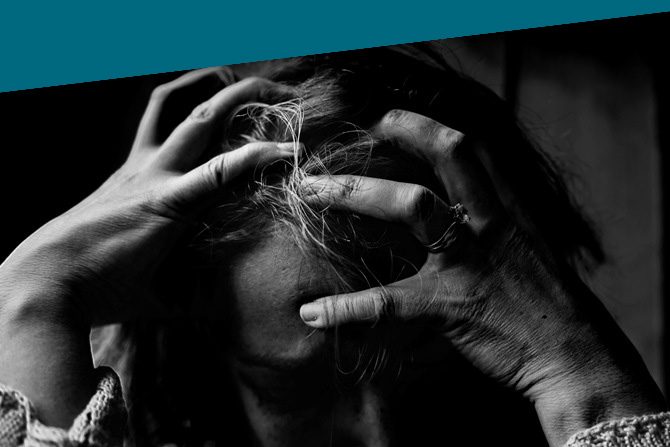
|
Physical Manifestations of Stress |

|
How to Combat Depression |

|
Stomach Pain 101 |


